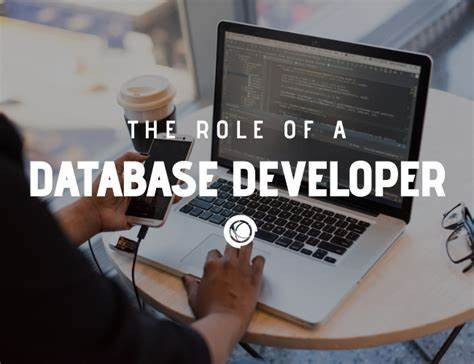views
As businesses become more data-driven, the importance of database developers has never been more pronounced. They ensure that data is accurately stored, quickly retrieved, securely handled, and efficiently managed—from small-scale apps to enterprise-grade solutions.
What Does a Database Developer Do?
At a fundamental level, a database developer is responsible for designing, implementing, and maintaining the structure and integrity of databases used by software systems. Their tasks typically include:
-
Creating and optimizing database schemas
-
Writing SQL queries and stored procedures
-
Managing indexing, triggers, and views
-
Handling data migrations and integrations
-
Working with data warehouses and ETL (Extract, Transform, Load) pipelines
They bridge the gap between application logic and data persistence, ensuring seamless data flow within systems.
The Expanding Scope of the Role
In modern development environments, the scope of a database developer goes well beyond traditional relational databases like MySQL, PostgreSQL, or Oracle. Today’s professionals must also work with:
-
NoSQL databases like MongoDB and Cassandra for flexible, document-based data
-
Cloud-based databases such as Amazon RDS, Azure SQL Database, or Google BigQuery
-
Real-time databases like Firebase and Redis for fast, low-latency access
-
Data lakes and warehouses for big data analytics and reporting
This expansion means today’s database developers often collaborate with DevOps teams, data scientists, backend engineers, and business analysts.
Key Skills Every Modern Database Developer Should Have
The role has become multidisciplinary, requiring a blend of programming and analytical skills. Here are some key competencies:
| Skill Area | Description |
|---|---|
| SQL Mastery | Writing complex joins, subqueries, CTEs, stored procedures, and triggers |
| Data Modeling | Creating efficient ER diagrams, normalization, and relationship mapping |
| Performance Tuning | Index optimization, query analysis, and reducing latency |
| Scripting & Automation | Using languages like Python or PowerShell for automation tasks |
| Cloud & DevOps Integration | Understanding CI/CD pipelines and DBaaS platforms |
| Security & Compliance | Implementing role-based access, backups, and data encryption |
| Big Data & Analytics | Working with data pipelines and analytics platforms like Apache Spark |
How Database Developers Power Business Decisions
In the age of data-driven decision-making, database developers play a pivotal role in organizing and maintaining clean, structured, and accessible data. With businesses relying heavily on dashboards, CRMs, ERP systems, and mobile apps, developers must ensure that:
-
Reports run fast
-
Queries are optimized
-
Real-time updates are seamless
-
Data consistency is preserved across systems
For example, an e-commerce company’s ability to show product availability, customer orders, and shipment status in real time depends largely on efficient database operations.
Tools & Technologies in Use Today
Modern database developers often work with an ecosystem of tools, such as:
-
SQL Management Studio, pgAdmin, or Toad for administration
-
Liquibase or Flyway for version control of databases
-
AWS Glue, Apache Airflow, or Talend for ETL tasks
-
Power BI, Tableau, or Looker for data visualization and reporting
Staying up-to-date with these tools gives developers a competitive edge in today’s job market.
The Shift to Database as Code (DBaaC)
Just like infrastructure is now managed through code (IaC), databases too are heading in that direction. With Database as Code, developers define schema changes through scripts and version control, allowing:
-
Rollbacks
-
Continuous integration
-
Better collaboration with teams
This makes deployments safer and aligns with agile and DevOps methodologies.
Conclusion
The role of the database developer has evolved from being a behind-the-scenes contributor to a strategic player in digital transformation. In today’s data-driven landscape, they ensure not only the stability of applications but also the quality of insights drawn from vast datasets.
Whether it's managing an online transaction system or enabling real-time analytics for a mobile app, the work of a skilled database developer is foundational to modern software architecture.
Looking for Experts to Build Data-Driven Solutions?
Hexadecimal Software is a trusted partner in software development, offering tailored solutions for enterprise databases, cloud-based applications, and real-time data systems. Our expert developers are proficient in building high-performance, scalable, and secure database-driven systems for businesses across domains.
Explore More at HexaHome
Visit the HexaHome Blog for more insights on technology, real estate, and digital infrastructure that shapes how we live and work today.




Comments
0 comment